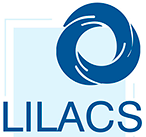Identification of maternal and family factors associated with abandonment of exclusive breastfeeding
DOI:
https://doi.org/10.19136/hs.a24n1.5960Abstract
Objective: To identify maternal and family factors associated with the abandonment of exclusive breastfeeding.
Materials and methods: Analytical cross-sectional study, including 152 women with 6-month-old children from the Family Medicine Unit (UMF) No. 66 in Xalapa, Mexico. Sociodemographic and family information, breastfeeding practices, and the Edinburgh Scale were collected. Statistical analysis was performed using X2 analysis and binary logistic regression.
Results: A total of 152 women were included, with a mean age of 30.5 years (SD= 5.9), 84.2% with high school education or more, 39.5% were housewives and 36.2% employed, 89.5% had a stable partner, 31.6% had suspected depression, and 3.4% had thoughts of self-harm. The prevalence of exclusive breastfeeding was 43.4% (CI95%35.5%-51.3%) and the factors associated with abandonment were occupation, initiation of formula milk (FMB) during hospital stay at birth, use of accessories (pacifier, bottle), age at which the mother plans to stop BF, family typology by development and number of pregnancies. Using formula during hospitalization at birth was found to be the only risk factor present in multiple regression models with an unadjusted OR of 4.4 (CI95% 2.1 - 9).
Conclusions: The active intervention of medical staff is a pillar that can favor or hinder the exclusivity of breastfeeding. Healthcare spaces must be improved to promote and protect breastfeeding.
Keywords: Breastfeeding; Child health; Depression, postpartum.
Downloads
Downloads
Published
Issue
Section
License
Copyright (c) 2025 Horizonte Sanitario

This work is licensed under a Creative Commons Attribution-NonCommercial-ShareAlike 4.0 International License.


































